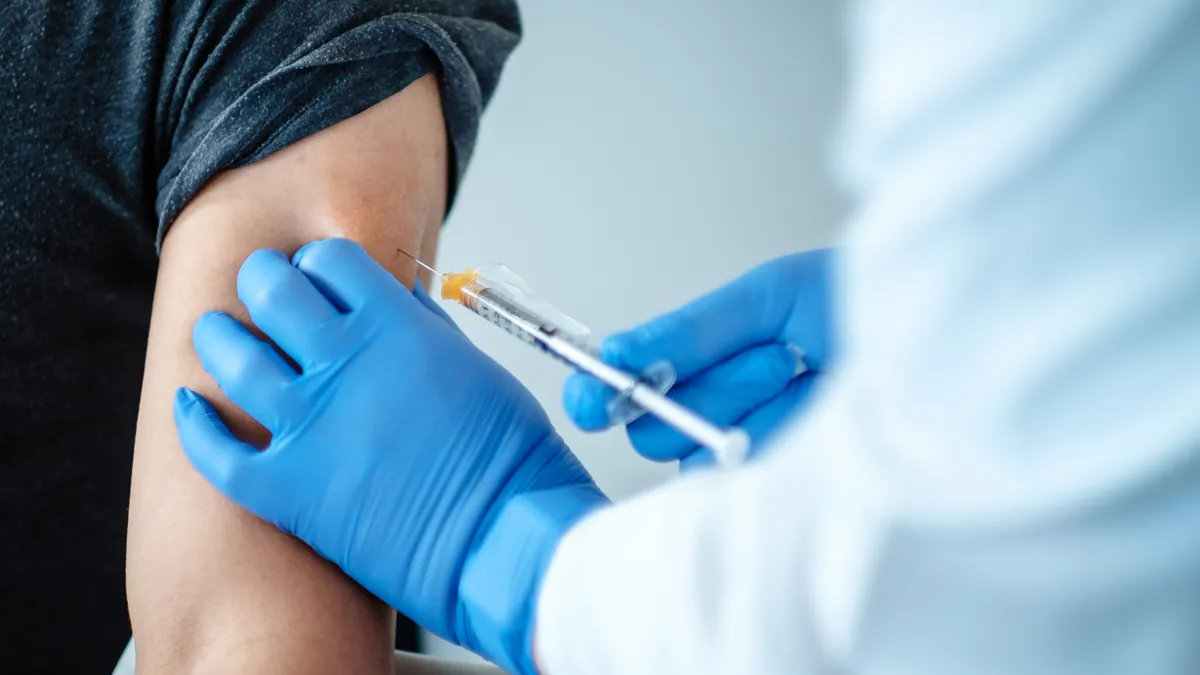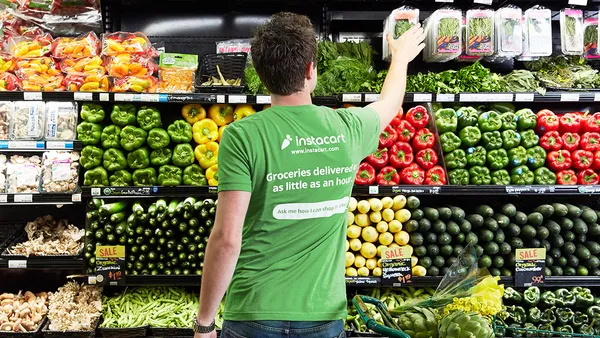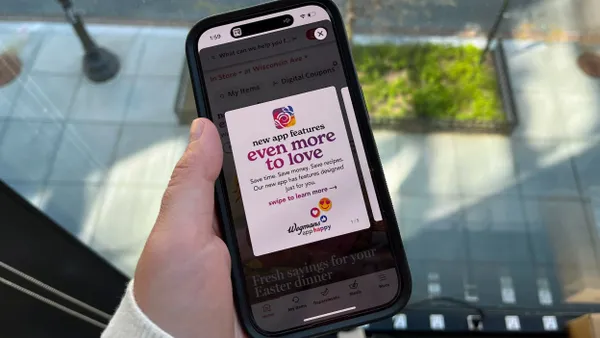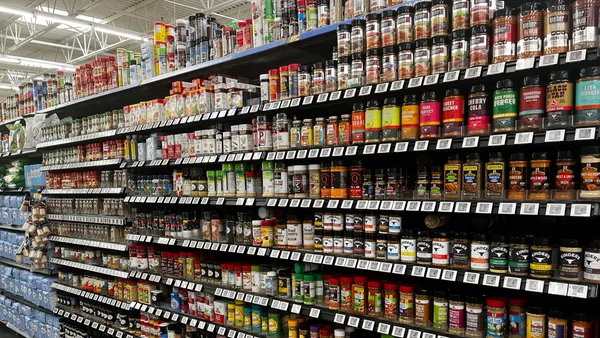Dive Brief:
- Kroger Health has created a new COVID-19 vaccine scheduling tool that allows recipients to check their eligibility and book appointments concurrently for their first and second doses once eligible, the chain announced in a press release on Wednesday.
- The scheduling system will be capable of managing more than 250,000 daily requests and will have an updated count of Kroger’s confirmed supply of COVID-19 vaccine doses. Kroger Health has also invested in several other initiatives designed to streamline the vaccination process, including an artificial intelligence-powered vaccine support call center and advanced security on the scheduling platform to protect against bot activity.
- Kroger Health said it would be able to administer 500,000 vaccinations per week if all of its pharmacies had a supply of doses.
Dive Insight:
Kroger has been a prominent player within the grocery industry in responding to the pandemic. It led a massive acceleration in testing capacity at its stores, advocated for the classification of grocery employees as “emergency personnel” and was the first retailer to provide COVID-19 antibody testing at all pharmacies.
Around 1,300 of Kroger’s 2,200 pharmacies in the U.S. are receiving and administering COVID-19 vaccines now, and the company has, so far, administered 380,000 shots to people including health care workers, nursing facility staff, older people and store associates.
In December, Kroger Health committed to taking on an extra 1,000 healthcare personnel to facilitate its vaccination drive, and last week, the grocer said it would compensate its associates $100 for getting vaccinated. Kroger Chief Medical Officer Marc Watkins said in the press release that “everyone who is eligible should make it a priority to schedule their COVID-19 vaccination appointment.”
The U.S. is currently administering an average of more than 1.5 million doses of COVID-19 vaccines per day and is looking to scale up that figure. Kroger, along with other grocers such as Hy-Vee, Publix, Walmart, Ahold Delhaize and Albertsons, is part of an effort by the federal government to speed up vaccine distribution by shipping doses directly to pharmacies instead of via states.
The vaccine rollout has seen logistical and technical issues amid fierce demand for appointments and supply shortages. Health officials in Connecticut recently reported that seniors were unable to schedule a second dose despite having received their first dose, creating anxiety among people worried about getting both shots in the recommended time frame.
Vaccine providers have also taken varying approaches to the scheduling of doses, with only certain providers scheduling people for their second dose immediately after their first dose is administered.












